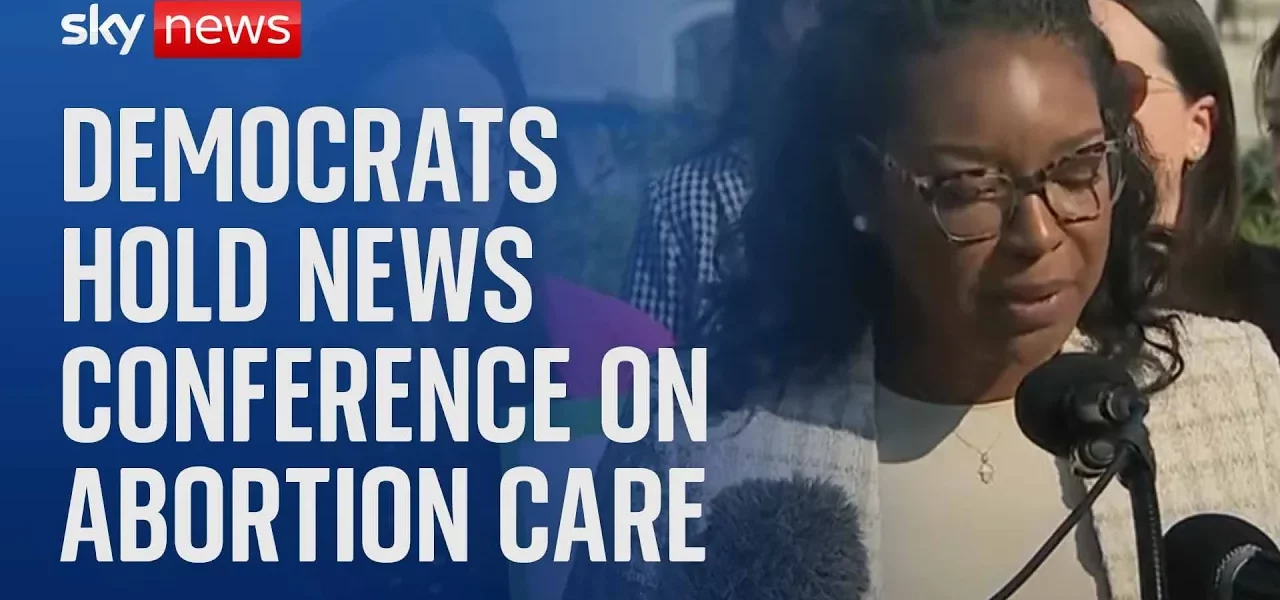Emergency Abortion Care: A Call to Action by Congresswoman Amelia Sykes

In a significant address, Congresswoman Amelia Sykes emphasizes the urgent need for reaffirming the right to emergency abortion care across the United States. This article delves into the critical issues surrounding reproductive rights, the implications of state bans, and the need for legislative action.
Introduction
On a crucial day in Congress, Congresswoman Amelia Sykes, representing Ohio’s 13th district, gathered with fellow lawmakers to address a pressing issue in the realm of women’s healthcare—emergency abortion care. Since the overturning of Roe v. Wade, countless women have faced harrowing situations due to restrictive state laws. Sykes’s resolution aims to protect the rights of women seeking emergency medical treatment, particularly in life-threatening circumstances. This article explores the implications of these laws, the experiences shared by women like Britney Watts, and the broader fight for reproductive rights in America.
The Importance of Emergency Abortion Care
Emergency abortion care is not merely a political issue; it is a matter of life and death for many women across the country. The resolution introduced by Congresswoman Sykes and her colleagues seeks to ensure that women have access to the necessary medical care without the fear of legal repercussions. The critical nature of this issue is underscored by the following points:
- Women should not have to wait until they are on their deathbed to receive essential medical care.
- Emergency rooms are required by the Emergency Medical Treatment and Labor Act (EMTALA) to stabilize patients, including those seeking abortions.
- State laws restricting abortion access can lead to tragic outcomes for women in medical emergencies.
Personal Stories Highlighting the Crisis
The stories of women like Britney Watts serve to illustrate the real-life consequences of restrictive abortion laws. Britney’s experience—being denied critical medical care multiple times—highlights a systemic failure that many women face. Key aspects of her story include:
- Watts, a 34-year-old woman from Ohio, sought help for pregnancy complications.
- After multiple trips to the emergency room, she was ultimately denied the care she desperately needed.
- The aftermath of her experience resulted in legal repercussions rather than medical assistance.
Such narratives are not isolated incidents; they reflect a growing trend of women being turned away from emergency care due to state laws, leading to severe health risks and emotional turmoil.
The Role of Healthcare Providers
Healthcare providers are caught in a precarious position due to conflicting state and federal laws. Medical professionals who have sworn to “do no harm” are finding themselves in situations where legal fears inhibit their ability to provide necessary care. The following points summarize the challenges faced by healthcare providers:
- Fear of losing medical licenses or facing criminal charges if they perform emergency abortions.
- Confusion surrounding the legality of providing care under EMTALA in states with restrictive abortion laws.
- Increased stress and emotional burden on providers who want to prioritize patient care but are constrained by legal uncertainties.
Legislative Initiatives and the Path Forward
In light of the challenges presented by the current legal landscape, Sykes’s resolution is a critical step towards safeguarding women’s rights to emergency abortion care. The resolution aims to:
- Reaffirm the protections provided under EMTALA for women seeking emergency medical treatment.
- Provide clarity and certainty for healthcare providers regarding their obligations and rights.
- Counteract the ongoing attacks on reproductive rights by establishing federal protections for women in all states.
As lawmakers continue to navigate this contentious issue, it’s essential to recognize that the fight for reproductive rights is far from over.
Conclusion
In conclusion, the need for emergency abortion care is an urgent issue that requires immediate attention from lawmakers and society at large. The resolution led by Congresswoman Amelia Sykes is a vital step towards ensuring that women across the United States have access to the medical care they need, when they need it most. It is crucial for advocates, healthcare providers, and citizens to join forces in the fight for reproductive justice. We encourage everyone to stay informed, support reproductive rights initiatives, and participate in advocacy efforts to protect women’s health and autonomy.
“`




